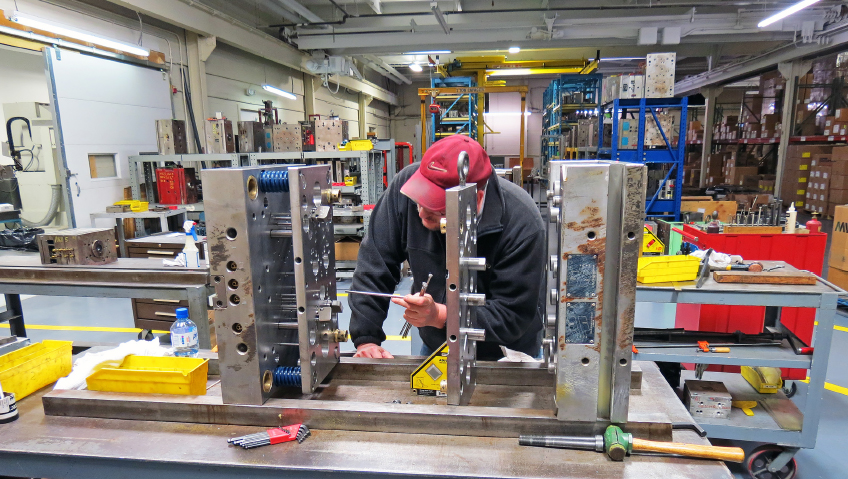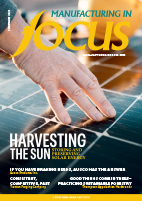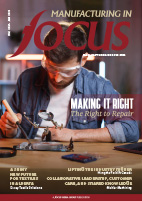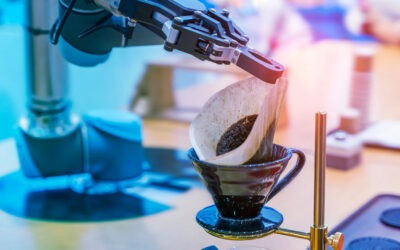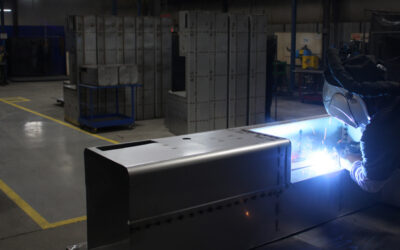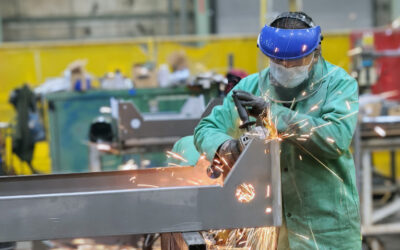When it comes to polymer-based products, Plastic Molding Manufacturing (PMM) of Hudson, Massachusetts is the go-to manufacturer. Throughout its fifty-year history, the company has aided in the design and production of its clients’ molds, reducing costs and incorporating the latest in technology. Chief Executive Officer George E. Danis takes great pride in his company’s products being American-made.
PMM looks to be competitive and fully support customers to continue working in the U.S. as opposed to outsourcing. “We manage to do this with competitive pricing and excellent quality and service. We believe in investing in the U.S., and all of our parts are made in the USA,” says George.
Indeed, George has been a proponent and a continuous voice for re-shoring for U.S. manufacturing. Manufacturing is crucial to the U.S. economy, and although a lot has been lost to China, some of that has come back due to the vast technical experience of the company and its staff.
George has asked the government to encourage manufacturing and give small businesses a chance to grow and employ more people. This helps business owners and entrepreneurs to invest in U.S. manufacturing. “We engineer and help our customers to develop a product that they have dreamed of or already have and fine-tune it. We help with efficiencies and are more cost-effective than what you see elsewhere,” says George.
With five manufacturing plants spread throughout the U.S., PMM has the equipment and infrastructure to meet all customer needs. Two plants are in Connecticut, and the others are in Massachusetts, Pennsylvania, and Indiana. Even if the team is busy working, there will never be an issue with an emergency order, as the company can move tools whenever necessary, and there are 120 machines. It is ISO certified and is second-to-none in technology, research, design, and manufacturing capabilities to serve its customers.
“In manufacturing, we must be more competitive than overseas, which is difficult to do with the rising U.S. labor costs, health insurance premiums rising, and the capital equipment needed is very expensive. We are focused and committed to re-shoring and bringing as many jobs as possible back to the U.S.,” says George. To accomplish this, manufacturing needs to attain a quicker depreciation on capital investments, rather than the five years the IRS is currently allowing, and healthcare insurance must be lower and controlled.
The company works with large firms such as GE, Boston Scientific, 3M, Tyco, and Harley Davidson and with the auto industry and other customers such as Watts Water, Smith & Wesson and many others. In total, there are over 350 customers, in seven to eight markets, with product lines in multiple industries. “We offer many unique services like our certified clean room that will help people in the medical field and two-shot machines to produce two different types of material or colors on the same part for any other industries,” says George.
PMM is always looking to diversify and works hard to dedicate no more than fifteen to twenty percent of its efforts to any one customer at a time.
“Our people are very focused on quality, productivity and automation, and we have daily reports on everything from plans to quality, shipments, bookings, and labor costs. Every day our plant managers, CFO, and other managers know exactly what needs to be done through our organized and focused report as well as our weekly executive meetings,” says George.
The productivity is made possible through efficient allocation of resources. The corporate purchasing department plans the necessary purchases, and tool purchases are local when possible. The company also has a centralized quoting/pricing department that quotes all of its new work and determines which of the five plants should run the work to give the customer an ideal location and capabilities. “Our HR department is centralized along with accounting and finance. Our management executive team, composed of six people, meets on a weekly basis to go over the results and reviews the agenda and how the plants are progressing. Plant managers will go over the results and reports of the previous week,” says George.
“Most of the time I participate through a phone call. I choose not to be present because that may make it more difficult for my staff to manage the situation. Each week a member rotates as facilitator of the meeting. Everybody knows the corporate policies and objectives,” says George.
George is passionate about technology and automation. Some organizations in this industry are small and only have a few molding machines, but Plastic Molding Manufacturing monitors their machines with a system that indicates if the tool is running at complete efficiency.
“We have that on every machine and are looking to take it a step further to improve the optimum quality. There is a mold sensor that you put in a mold, and it tells you if the mold is doing what it is supposed to do. We are looking at touchscreen processes on each machine, so we have real-time actual numbers when the machine is running,” says George.
In that way, the company can see the machine as its running and stop before too many parts are made if there is any sign of imperfection. Its up-to-date machinery includes high-speed, multi-cavity molding equipment with secondary automatic assembly. There is a lot of technology that can go into improving the process, and Plastic Molding Manufacturing is continuously updating its equipment and adding the latest robotics and automation equipment.
“The customer comes to us with a plan, and we ensure everything is tailor-made for that particular job. Our proprietary mold technology is versatile and can be used on a new design at a very low cost, for a specific tool, for any customer so it can produce their work,” says George.
Recently, the company acquired plastics manufacturing company Phillips-Moldex and has developed manufacturing cells, where the molding machine and assembly equipment are moved closer together to improve the efficiency and quality of manufacturing and packaging by eliminating the need for parts to move to the assembly machine.
Competition from China is always an issue, but service, quality and delivery has been an issue; the future is with U.S. manufacturing, George believes, because Chinese labor costs are also increasing, and Plastic Molding Manufacturing has been successful in bringing projects back from China.
“There are multiple communication problems as well as issues with logistics when trying to bring parts in from China. It can take over thirty days. At times, if the wrong parts are sent, it can be difficult to rectify with the long wait times. The time difference is also a problem. We have to be up beyond regular hours of operation to communicate with them,” says George.
“If you do business with China, their customers, and the industry in general, must understand these difficulties, and the latest coronavirus has not helped matters. Companies ordering tools expected from China will have a hard time receiving them because the Chinese government has quarantined some of the plants and limited travel,” he explains.
“In contrast, with Plastic Molding Manufacturing, if a project will be late due to an unforeseen problem at that plant, we can transfer the customer’s mold to another one of our plants. You can run into times where a material that a customer specifies for a part is not available or has a long lead time. Our purchasing department works with the supplier to ensure they have extra inventory for us, and knows the expected lead time,” says George.
Plastic Molding Manufacturing is good at forecasting how long a job is going to run and accommodates the customer’s schedule. A machine could break, but with five plants, the company can deal with most any situation it faces.
George is excited for the future and what it holds. The company is looking to upgrade its facilities with state of the art equipment and infrastructure to have a stronger advantage in manufacturing and quality going forward. “The upgraded facilities will have better working conditions for our people and the infrastructure will include two crane systems, and many more options,” says George.
“PMM is helping to bring business back to the USA by providing our customers the ability to manufacture their products domestically and create job growth with better pay to help our U.S. citizens with innovative technology, on-time production, and overall satisfaction that helps our customers achieve their needs with speed into their markets, unquestionable quality, and competitive price,” says George.

